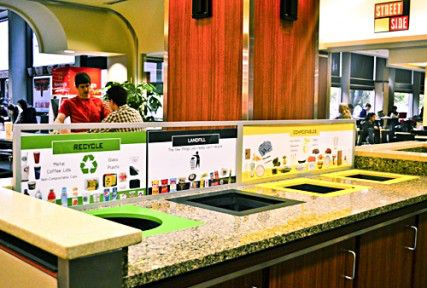
While Boston University has made improvements in its ecological programs, a lot still needs to be done, Sustainability@BU representatives said.
“Our slogan is, ‘It’s what you do,’ but it’s what we all do together,” said Dennis Carlberg, director of Sustainability. “It’s not somebody else’s problem. We all need to work on this together.”
Sustainability drafted a 17-part strategic plan based on the Sustainability Tracking, Assessment and Rating System, STARS, to address issues such as climate action, Carlberg said.
“Like STARS, our strategic plan actually has 17 different issue areas from curriculum, research, co-curricular activities, all the operational stuff that you’d expect,” Carlberg said. “This is the national standard, and that’s important for us.”
However, no proposed goals have been agreed to yet, and Sustainability will be proposing the plan to the Sustainability Steering Committee.
“The reason for that is we need to do the hard work of justifying the cost benefit, which is what we’re going to be doing over the next six months,” Carlberg said. “It’s not easy here to get things approved, and I’m saying that in a positive way, because it has to be right.”
BU earned a silver ranking through STARS in December 2011, according to the STARS website.
A silver ranking signifies room for improvement, said Sustainability intern Michael Orr. To continue its efforts, Sustainability looks to develop a Green Department Certification and improve lab energy efficiency.
“We’re also developing the Green Department Certification to address larger issues involving purchasing and department-wide policies for sustainability,” Orr said in an email interview.
BU will resubmit to STARS again in a few weeks for a new rating, Carlberg said.
In addition, the initiatives in the 2011-12 academic year included promoting Green Office Certification, installing electric vehicle charging stations in the BU Medical Campus and constructing two buildings certified through the Leadership in Energy and Environmental Design rating system.
Both LEED-certified buildings, the East Campus Student Center and BUMC residence, are set to open this fall, Carlberg said. The residence is the first on the BUMC campus where gray – previously used – water reclamation has been implemented.
“There’s a dorm project on the Medical Campus that is using captured drain water, storing it and using it for irrigation,” Carlberg said. “We’re interested in doing this where it’s appropriate.”
The BUMC residence is expected to receive LEED silver, and the East Campus Student Center is tracking at LEED gold.
“That’s been our focus for this past year, getting buildings going on LEED,” Carlberg said. “We’re really looking forward and making sure we’re doing things right now so that the new building stock is energy efficient, water efficient and [provides] a healthy place to live and work.”
LEED ratings were also used in the Green Office Certification project this year, Carlberg said. Orr said the Green Office Certification project has taken great strides this semester, and only two schools remain to be certified.
“We’re hoping to have at least a few participants from each college or school on campus by early this summer,” he said.
Sustainability has certified 115 offices since February and 415 offices in total, Orr said.
“The next few things we are working on is improving the Green Office Certification by determining if those who have already been [certified] are continuing to improve sustainability in their workplace,” he said.
Other initiatives this year included the addition of 36 BigBelly waste and recycling collection systems to campus and piloting a trash buddy program at the School of Education and the George Sherman Union.
Two and a half tons of paper per year per restroom were saved by implementing hand dryers in the GSU in place of paper towels, said Sustainability intern Meredith Withelder.
Trash buddies, small trash cans to place waste in that hang off recycling bins, will be piloted in two additional buildings, including in Facilities, by the end of the summer, Carlberg said.
Rachel Atcheson, next year’s Vegetarian Society president, said though many of Sustainability’s initiatives are “wonderful,” they take part in greenwashing, a public relations tactic.
“You’ll get a green initiative organization, such as Sustainability@BU, and they will push really hard to make everyone feel like they’re actually doing all these progressive things,” Atcheson, a College of Arts and Sciences junior, said. “Sustainability is not doing as much as they could be.”
Atcheson said Sustainability falls short in that it fails to address meat consumption, a major contribution to green house gases.
“The fact that they’re just not addressing the meat consumption is disappointing,” Atcheson said. “They divert attention from individuals’ meat consumption to their recycling or reusable bags initiatives.”
Jaime Silverstein, director of Environmental Affairs within Student Union and a School of Management senior, said the environmental group on campus made an initiative to come together this year.
She said, “We need more students on board and participating so that we have more of an environmental impact on campus.”